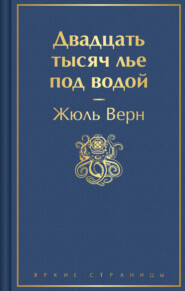По всем вопросам обращайтесь на: info@litportal.ru
(©) 2003-2024.
✖
Round the World in Eighty Days
Настройки чтения
Размер шрифта
Высота строк
Поля
The rash attempt had proved successful. An hour later, Passe-partout was laughing at the result of his venturous plan. Sir Francis Cromarty had shaken hands with him. His master had said, "Well done!" which from him was high commendation indeed. To which expressions of approbation, Passe-partout had replied that all the credit of the affair belonged to his master. His own share in it had been an absurd notion after all; and he laughed again when he thought that he, Passe-partout, the ex-gymnast, ex-sergeant of the fire brigade, had actually played the part of spouse of a beautiful young lady, the widow of an embalmed rajah!
As for the young lady herself, she was still insensible, and quite unconscious of all that was passing or had lately passed. Wrapped up in a railroad-rug, she was now reclining in one of the howdahs.
Meanwhile the elephant, guided with unerring care by the Parsee, was progressing rapidly through the still gloomy forest. After an hour's ride, they arrived at an extensive plain. At seven o'clock they halted. The young lady was still quite unconscious. The guide poured some brandy down her throat, but she remained insensible for some time afterwards. Sir Francis Cromarty, who was aware that no serious evil effects supervened from the inhalation of the fumes of hemp, was in no way anxious about her.
But if her restoration to consciousness was not a subject of anxiety to the brigadier, he was less assured respecting her life in the future. He did not hesitate to tell Mr. Fogg that if Madame Aouda remained in India, she would sooner or later be taken by her would-be executioners. Those fanatics were scattered everywhere through the peninsula, and there was not a doubt that, despite the English police, the Hindoos would claim their victim, no matter in what presidency she might endeavour to take refuge. And in support of his assertion, Sir Francis instanced a similar case which had recently taken place. His opinion, therefore, was that she would only be in absolute safety when she quitted India for ever.
Mr. Fogg replied that he would consider the matter, and give his opinion later.
About ten o'clock the guide announced that they were close to Allahabad. Then they would be able to continue their journey by the railroad, and in about four-and-twenty hours they would reach Calcutta. Phileas Fogg would in that case be in time to catch the Hong Kong steamer, which was to sail at noon on the 25th of October. The young woman was safely bestowed in a private waiting-room, while Passe-partout was hurriedly despatched to purchase various necessary articles of clothing, etc, for her use. His master supplied the funds for the purpose.
Passe-partout hastened away, and ran through the streets of Allahabad – the City of God – one of the most sacred cities of India, inasmuch as it is built at the junction of the two holy streams of the Ganges and the Jumna, whose waters attract pilgrims from every part of the peninsula. We are also told that the Ganges has its source in heaven, whence, owing to the influence of Bramah, it condescends to earth.
While he made his purchases diligently, Passe-partout did not forget to look about him and see something of the city. It was at one time defended by a splendid fort, which has since become the State prison. Commerce and business no longer occupy their former places in Allahabad. Vainly did the worthy European seek for such emporiums as he would have met in Regent Street; he could find nothing better than the shop of an old Jew clothesman – a crusty old man he was too. From him he purchased a tweed dress, a large cloak, and a magnificent otter-skin pelisse which cost seventy-five pounds. With these garments he returned in triumph to the railway station.
Mrs. Aouda had by that time partly recovered consciousness. The influence of the drug administered by the priests was passing away by degrees, and her bright eyes were once again resuming their soft and charming Indian expression.
The poet-king, Uçaf Uddaul, celebrating the charms of the Queen of Ahundnagara, thus sings:
"Her shining locks, parted in the centre of her forehead, set off the harmonious contours of her white and delicate cheeks, all glowing in their freshness. Her ebon brows have the shape and power of the bow of Kama, the god of love; and beneath her silken lashes, her dark eyes swim in liquid tenderness, as in the sacred lakes of the Himalayas is reflected the celestial light. Her glittering, even, pearl-like teeth shine between the smiling lips as the dewdrops in the half-closed petals of the passion-flower. Her tiny ears, with curves divine, her small hands, her little feet, tender as the buds of lotus, sparkle with the pearls of Ceylon and the dazzling diamonds of the famed Golconda. Her rounded, supple waist, which hand may circle round, displays the curving outline of the hips, and swelling bosom, where youth in all its loveliness expands its perfect treasures. Beneath the tunic-folds the limbs seem formed within a silver mould by the god-like hand of Vicvarcarnia, the immortal sculptor."
Without exactly comparing Mrs. Aouda with the foregoing description, it may be stated that she was a most charming woman, in the fullest acceptation of the term. She spoke English with fluency and purity, and the guide had only stated the truth when he had averred that the Parsee lady had been transformed by her education.
The train was about to start; Mr. Fogg was paying the Parsee guide his hire as agreed – not a farthing in excess. This business-like arrangement rather astonished Passe-partout, when he recalled all they owed to the guide's devotion. In fact, the Parsee had risked his life voluntarily by engaging in the affair at Pillaji, and if he should be caught by the Hindoos he would very likely be severely dealt with. There was still Kiouni, however. What was to be done with the elephant, which had cost so much? But Phileas Fogg had already made up his mind on that point.
"Parsee," said he to the guide, "you have been most useful and devoted to us. I have paid for your services, but not for your devotion. Would you like to have the elephant? If so, he is yours." The eyes of the guide sparkled.
"Your honour is giving me a fortune!" he exclaimed.
"Take him," replied Mr. Fogg, "and then I shall still be in your debt."
"Hurrah!" cried Passe-partout; "take him, my friend. Kiouni is a fine animal;" and going up to the beast, he gave him some pieces of sugar, saying, "Here, Kiouni, take this, and this."
The elephant gave vent to some grunts of satisfaction, and then seizing Passe-partout by the waist with his trunk, he lifted him up. Passe-partout, not in the least afraid, continued to caress the animal, which replaced him gently on the ground, and to the pressure of the honest Kiouni's trunk, Passe-partout responded with a kindly blow.
Some short time after, Phileas Fogg, Sir Francis Cromarty, and Passe-partout were seated with Mrs. Aouda, who occupied the best place in a comfortable compartment of the train, which was speeding towards Benares. This run of eighty miles from Allahabad was accomplished in two hours, and in that time the young lady had quite recovered from the drugs she had inhaled. Her astonishment at finding herself in the train, dressed in European garments, and with three travellers utterly unknown to her, may be imagined.
Her companions in the first place showed her every attention, even to the administration of a few drops of liqueur, and then the general told her what had happened. He particularly dwelt upon the devotedness of Phileas Fogg, who had risked his life to save hers, and upon the termination of the adventure, of which Passe-partout was the hero. Mr. Fogg made no remark whatever, and Passe-partout looked very bashful, and declared it was not worth speaking of.
Mrs. Aouda thanked her deliverers effusively by tears at least as much as by words. Her beautiful eyes even more than her lips expressed her gratitude. Then her thoughts flew back to the suttee, and as she remarked she was still on Indian territory, she shuddered with horror. Phileas Fogg, guessing her thoughts, hastened to reassure her, and quietly offered to escort her to Hong Kong, where she could remain till the affair had blown over. This offer the lady moat gratefully accepted, for – curiously enough – a relative of hers, a Parsee like herself, was then residing at Hong Kong, and was one of the principal merchants of that British settlement.
At half-past twelve the train stopped at Benares. Brahmin legends state that this town is built upon the site of the ancient Casi, which was at one time suspended between heaven and earth, like Mahomet's coffin. But in these practical days, Benares, which orientals call the Athens of India, rests prosaically upon the ground, and Passe-partout caught many a glimpse of brick houses and numerous clay huts, which gave the place a desolate appearance, without any local colour.
Sir Francis Cromarty had now reached his destination; the troops he was to command were encamped a few miles to the north of the town. He took farewell of Phileas Fogg, wished him every success, and expressed a hope that he would continue his journey in a more profitable and less original manner. Mr. Fogg gently pressed his companion's hand. Mrs. Aouda was more demonstrative; she could not forget what she owed to Sir Francis Cromarty. As for Passe-partout, he was honoured with a hearty shake of the general's hand, and was much impressed thereby. So they parted.
From Benares the railway traverses the valley of the Ganges. The travellers had many glimpses of the varied country of Behar, the hills covered with verdure, and a succession of barley, wheat, and com fields, jungles full of alligators, neat villages, and thick forests. Elephants and other animals were bathing in the sacred river, as were also bands of Hindoos of both sexes, who, notwithstanding the advanced season of the year, were accomplishing their pious ablutions. These devotees were declared enemies of Buddhism, and were strict Brahmins, believing in Vishnu, the sun god; Shiva, the personification of nature; and Brahma, the head of priests and rulers. But how do Brahma, Shiva, and Vishnu regard India, now completely Anglicised, with hundreds of steamers darting and screaming along the holy waters of the Ganges, frightening the birds and beasts and faithful followers of the gods dwelling along the banks?
The landscape passed rapidly by, and was occasionally hidden by the stream. The travellers could now discern the fort of Chunar, twenty miles south-west of Benares; then Ghazipore and its important rose-water manufactories came in sight; then they caught a glimpse of the tomb of Lord Cornwallis, which rises on the left bank of the river; then the fortified town of Buxar; Patna, the great commercial city and principal opium-market of India; Monghir, an European town, as English as Manchester or Birmingham, with its foundries, factories, and tall chimneys vomiting forth volumes of black smoke.
Night fell, and still the train rushed on, in the midst of the roaring and growling of wild animals, which fled from the advancing locomotive. Nothing could of course then be seen of those wonders of Bengal, Golconda, the ruins of Gom, and Morschabad, Burdwan, the ancient capital, Hooghly, Chandernagore, in French territory, where Passe-partout would have been glad to see his country's ensign.
At last, at seven o'clock in the morning, they reached Calcutta. The steamer for Hong Kong was not to leave till mid-day, so Phileas Fogg had still five hours to spare.
According to his journal, he was due at Calcutta on the 25th October – twenty-three days from London; and at Calcutta he was as arranged. He had neither gained nor lost so far. Unfortunately, the two days he had had to spare he spent as we have seen while crossing the peninsula; but we must not suppose that Phileas Fogg regretted his actions for a moment.
CHAPTER XV
In which the Bag of Bank-notes is lightened by some Thousands of Pounds more.
Passe-partout was the first to alight from the train; Mr. Fogg followed, and helped out his fair companion. Phileas had counted upon proceeding directly to the steamer, so as to settle Mrs. Aouda comfortably on board. He was unwilling to leave her so long, as she was on such dangerous ground.
As Mr. Fogg was leaving the station a policeman approached him, and said, "Mr. Phileas Fogg, is it not?"
"It is," replied Phileas.
"And this is your servant?" continued the policeman, indicating Passe-partout.
"Yes."
"Will you be so good as to follow me?"
Mr. Fogg did not appear in the least degree surprised. The policeman was a representative of the law, and to an Englishman the law is sacred. Passe-partout, like a Frenchman, wanted to argue the point, but the policeman touched him with his cane, and his master made him a sign to obey.
"This young lady can accompany us?" said Mr. Fogg.
"Certainly," replied the policeman.
Mr. Fogg, Mrs. Aouda, and Passe-partout were then conducted to a "palkighari," a sort of four-wheeled carriage, holding four people, and drawn by two horses. They drove away, and no one spoke during the twenty minutes' drive.
The carriage passed through the "Black Town," and then through the European quarter, which, with its brick houses, well-dressed people, and handsome equipages, presented a marked contrast to the native town. The carriage stopped before a quiet-looking house, which, however, did not appear to be a private mansion. The policeman directed his prisoners – for so we may term them – to alight, and conducted them to a room, the windows of which were barred.
"At half-past eight," he said, "you will be brought before Judge Obadiah." He then went out and locked the door.
"So we are prisoners," exclaimed Passe-partout, dropping into a chair.
Mrs. Aouda, turning to Mr. Fogg, said tearfully: "Oh sir, pray do not think of me any longer. It is on my account that you have been arrested. It is for having saved me."
Phileas Fogg calmly replied that such a thing was not possible. It was quite out of the question that they could be arrested on account of the suttee. The complainants would not dare to present themselves. There must be some mistake, and Mr. Fogg added that in any case he would see the young lady safe to Hong Kong.
"But the steamer starts at twelve o'clock," said Passe-partout.
"We shall be on board before that," replied the impassible Fogg.
This was said so decidedly that Passe-partout could not help muttering, "That's all right then, we shall be on board in time no doubt." But in his soul he was not so very certain of it.
At half-past eight the door opened, the policeman entered, and conducted the friends into an adjoining room. This was the court, and was pretty well filled by Europeans and natives. The three companions were allotted seats on a bench lacing the magistrate's desk. Judge Obadiah, followed by the clerk, entered almost immediately. He was a fat, round-faced man. He took down a wig from a nail and put it on.
"Call the first case," he began, but immediately putting his hand to his head he said, "This is not my wig."

















